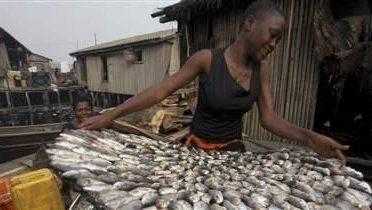While aquaculture is gaining popularity and momentum in Nigeria, the sector is still underdeveloped and inefficient. Fish farming inputs such as fish meal, fish feed, fish health supplies are mostly imported and their costs are too high for small scale fish farmers.
Locally produced fingerlings are also expensive and many are of questionable quality, this has created a phenomenon in which every fish farmer seeks to undertake both forward and backward integration without regard to scale of operations or skills.
Consequently, specialization or division of labour in the aquaculture sector is currently non-existent. It is not uncommon to find a micro-scale fish farmer attempting to hatch their own fingerlings, produce their own fish feed and concoct their own medicine.
To address the above issues, experts in the field of aquaculture from the Economic Communities of West African States (ECOWAS) gathered recently in Lagos under the World Bank assisted program, the West Africa Agricultural Productivity Program (WAAPP).
The objectivity of WAAPP is to improve agricultural productivity in the sub-region as well as encourage integrated development of agricultural research into technological generation.
Addressing the gathering, the Permanent Secretary, Federal Ministry of Agriculture, Mrs. Ibukun Odusote, said aquaculture plays a very significant role in Nigerian agricultural economy as it offers employment to millions of people along its divergent value chain.
She added that it was on the basis of its role that the ministry created the fisheries and aquaculture value chains under the Agriculture Transformation Agenda.
“The main emphasis of these value chains is to create an enabling environment for increased and sustainable production of over one million tons of fish and gradual reduction of fish imports which lead to conserving foreign exchange.”
Odusote disclosed that the fisheries and aquaculture value chain is set to increase the annual production of fingerlings by 1.25million; 400,000 tons of fish feed and an additional 250,000 tons of table fish, and 10,000 tons of value added fish and fisheries products.









